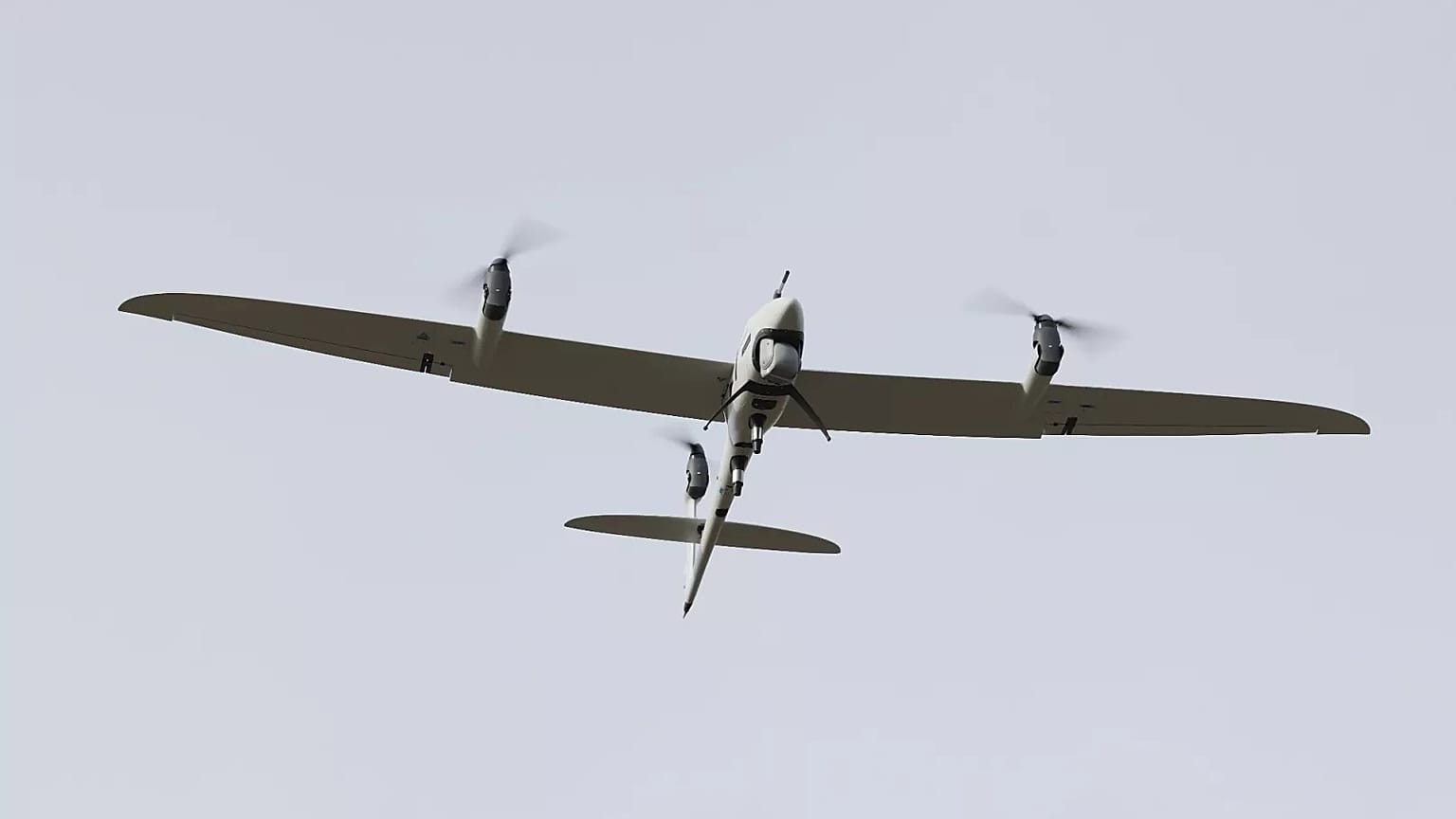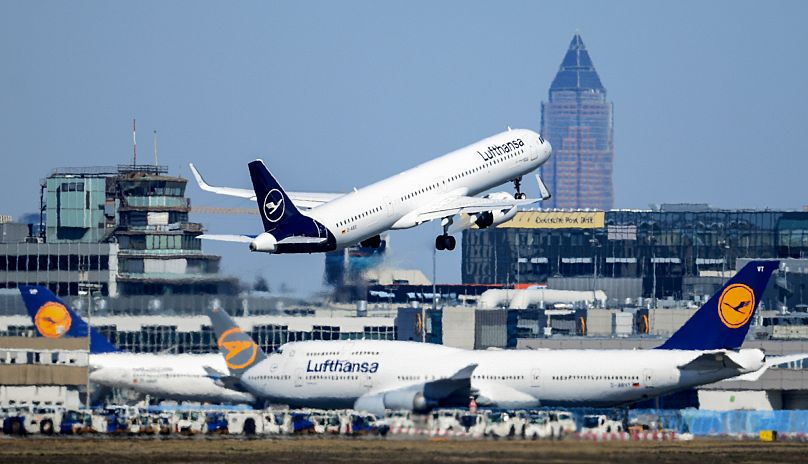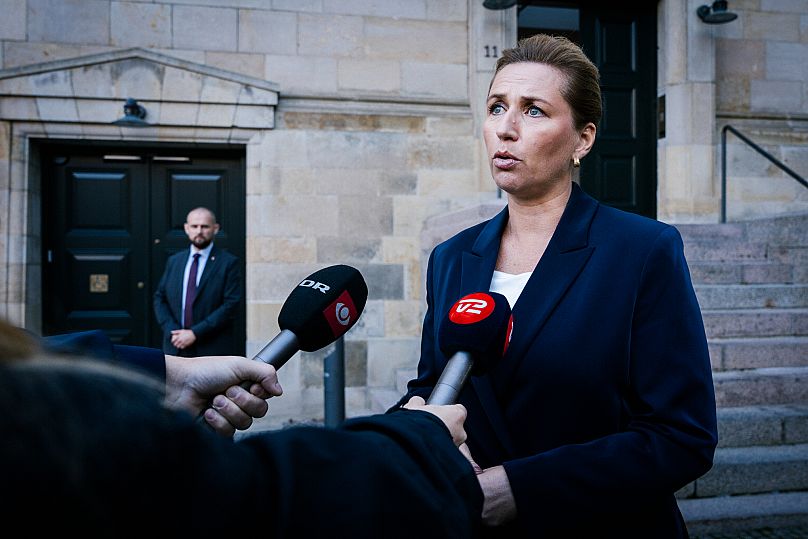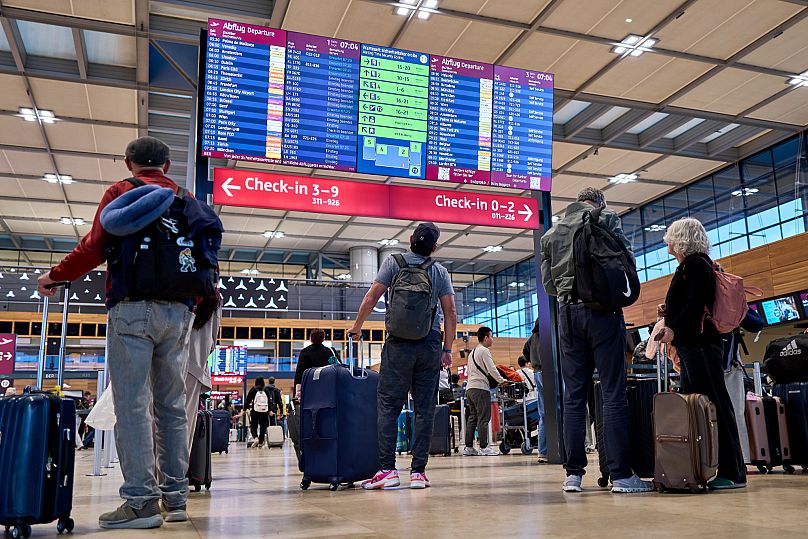The national air navigation service says 144 drone overflights have been logged this year alone and comes after airspace violations in Poland, Estonia and Romania.
Incidents of unidentified drones flying in Germany's airspace are on the rise with the country's air navigation service DFS saying 144 drone overflights have been logged this year alone, with 35 incidents clustered around Frankfurt Airport.
What remains unclear is how many of those drones were taking part in espionage.
The majority were reported by pilots, while other cases were discovered by air traffic controllers. The majority of these drone flights, around 90% on average, were reported from areas surrounding airports, DFS told Euronews.
For this reason, the Interior Minister Alexander Dobrindt wants to rapidly expand Germany's defence against drones.
The aim is to pool the competencies between the federal and state governments, develop new defence capabilities and "interlink" police and military drone defence, Dobrindt told Funke Mediengruppe newspapers.
He emphasised that Germany is in a technological arms race between drone attacks and defence measures, both civilian and military.
For the authorities, from the police to specialised security services, it is often difficult to distinguish between a possible spy drone and a harmless hobby device, which is why there is no differentiation between the various drones, the Thuringia State Police Directorate told Euronews.
Whether drones were used for security-related incidents or espionage will only be examined as part of the investigation, according to the state police department.
Drone terror in NATO airspace?
On Monday evening, the main airports in Oslo and Copenhagen had to suspend operations after drones were detected flying nearby.
Denmark's Prime Minister Mette Frederiksen said Russian involvement could not be ruled out.
"It says something about the times we live in and what we as a society must be prepared to deal with," Frederiksen said.
"We have Russian aerial reconnaissance in high or even low areas on a daily basis," said retired colonel and President of EuroDefence, Ralph Thiele.
By "high areas", Thiele is referring to reconnaissance in airspace at a higher altitude by jets or large drones, while "low areas" include smaller systems close to cities, airports or industrial plants.
"What they basically do is scout us out and create digital twins of our critical infrastructure, our military capabilities and our transport routes," explains Thiele. These "twins" can then be used for sabotage, espionage or even direct military attacks.
"That's what Russia is doing, so to speak - and we're looking on rather impotently," he added.
This means that images of sites and facilities are taken with millimetre precision, which can then be used to create digital models.
Drones jeopardise flight operations
A spokesperson for Fraport AG, the company that operates Frankfurt Airport, said that personnel, organisational and technical measures are being taken together with authorities in order to detect and counter drones at an early stage.
Should drones enter the safety area, DFS will decide whether flight operations should be restricted or even stopped.
"Such incidents pose a serious threat to the safety of air traffic and can also cause considerable economic damage," the spokesperson told Euronews.
Flying drones over airports is a criminal offence punishable by a prison sentence of up to 10 years. Four drone pilots have been caught by the police this year and an investigation has been initiated, according to Guido Zemp, Corporate Security at Fraport AG.
To enable investigations, the drone in question must first be intercepted or neutralised. In the case of civilian sites, the federal or state police are responsible. The German Armed Forces are only responsible for their own sites and must act in accordance with the principle of proportionality.
In order to authorise the Bundeswehr to assist the police in combating drones if necessary, the previous coalition government headed by Chancellor Olaf Scholz had planned to amend the Aviation Security Act. However, this amendment was never passed due to the change of government.
When asked by Euronews, a spokesperson for the Ministry of the Interior (BMI) confirmed that the government is now working on this.
"Coordination is still ongoing," the spokesperson said, who was unable to provide any specific details.


















